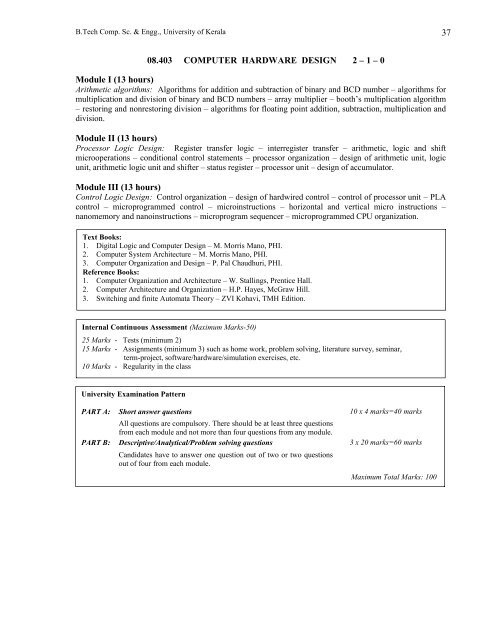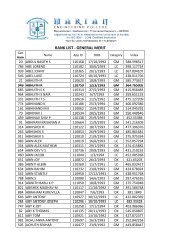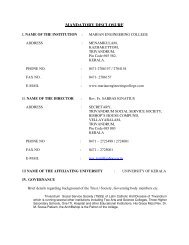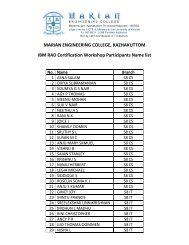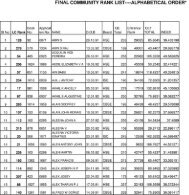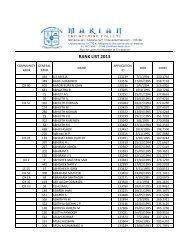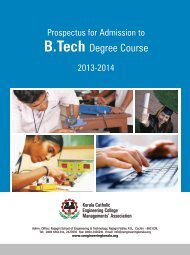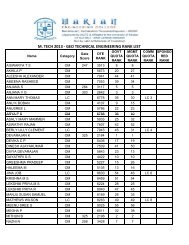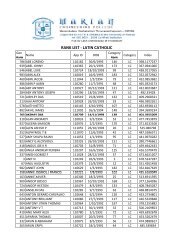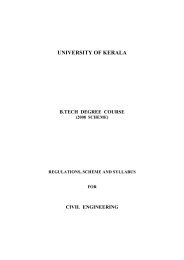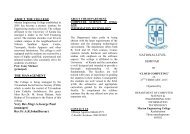UNIVERSITY OF KERALA - Marian Engineering College
UNIVERSITY OF KERALA - Marian Engineering College
UNIVERSITY OF KERALA - Marian Engineering College
You also want an ePaper? Increase the reach of your titles
YUMPU automatically turns print PDFs into web optimized ePapers that Google loves.
B.Tech Comp. Sc. & Engg., University of Kerala 37<br />
08.403 COMPUTER HARDWARE DESIGN 2 – 1 – 0<br />
Module I (13 hours)<br />
Arithmetic algorithms: Algorithms for addition and subtraction of binary and BCD number – algorithms for<br />
multiplication and division of binary and BCD numbers – array multiplier – booth’s multiplication algorithm<br />
– restoring and nonrestoring division – algorithms for floating point addition, subtraction, multiplication and<br />
division.<br />
Module II (13 hours)<br />
Processor Logic Design: Register transfer logic – interregister transfer – arithmetic, logic and shift<br />
microoperations – conditional control statements – processor organization – design of arithmetic unit, logic<br />
unit, arithmetic logic unit and shifter – status register – processor unit – design of accumulator.<br />
Module III (13 hours)<br />
Control Logic Design: Control organization – design of hardwired control – control of processor unit – PLA<br />
control – microprogrammed control – microinstructions – horizontal and vertical micro instructions –<br />
nanomemory and nanoinstructions – microprogram sequencer – microprogrammed CPU organization.<br />
Text Books:<br />
1. Digital Logic and Computer Design – M. Morris Mano, PHI.<br />
2. Computer System Architecture – M. Morris Mano, PHI.<br />
3. Computer Organization and Design – P. Pal Chaudhuri, PHI.<br />
Reference Books:<br />
1. Computer Organization and Architecture – W. Stallings, Prentice Hall.<br />
2. Computer Architecture and Organization – H.P. Hayes, McGraw Hill.<br />
3. Switching and finite Automata Theory – ZVI Kohavi, TMH Edition.<br />
Internal Continuous Assessment (Maximum Marks-50)<br />
25 Marks - Tests (minimum 2)<br />
15 Marks - Assignments (minimum 3) such as home work, problem solving, literature survey, seminar,<br />
term-project, software/hardware/simulation exercises, etc.<br />
10 Marks - Regularity in the class<br />
University Examination Pattern<br />
PART A: Short answer questions 10 x 4 marks=40 marks<br />
All questions are compulsory. There should be at least three questions<br />
from each module and not more than four questions from any module.<br />
PART B: Descriptive/Analytical/Problem solving questions 3 x 20 marks=60 marks<br />
Candidates have to answer one question out of two or two questions<br />
out of four from each module.<br />
Maximum Total Marks: 100


